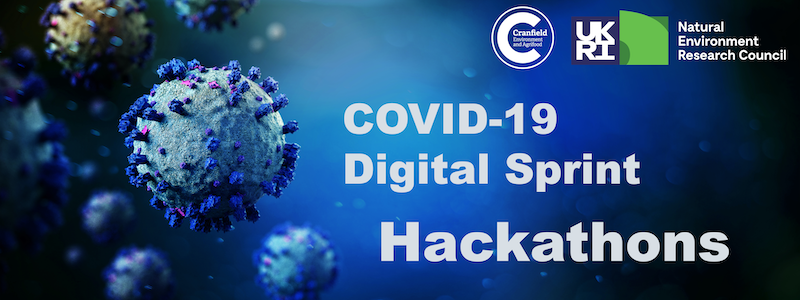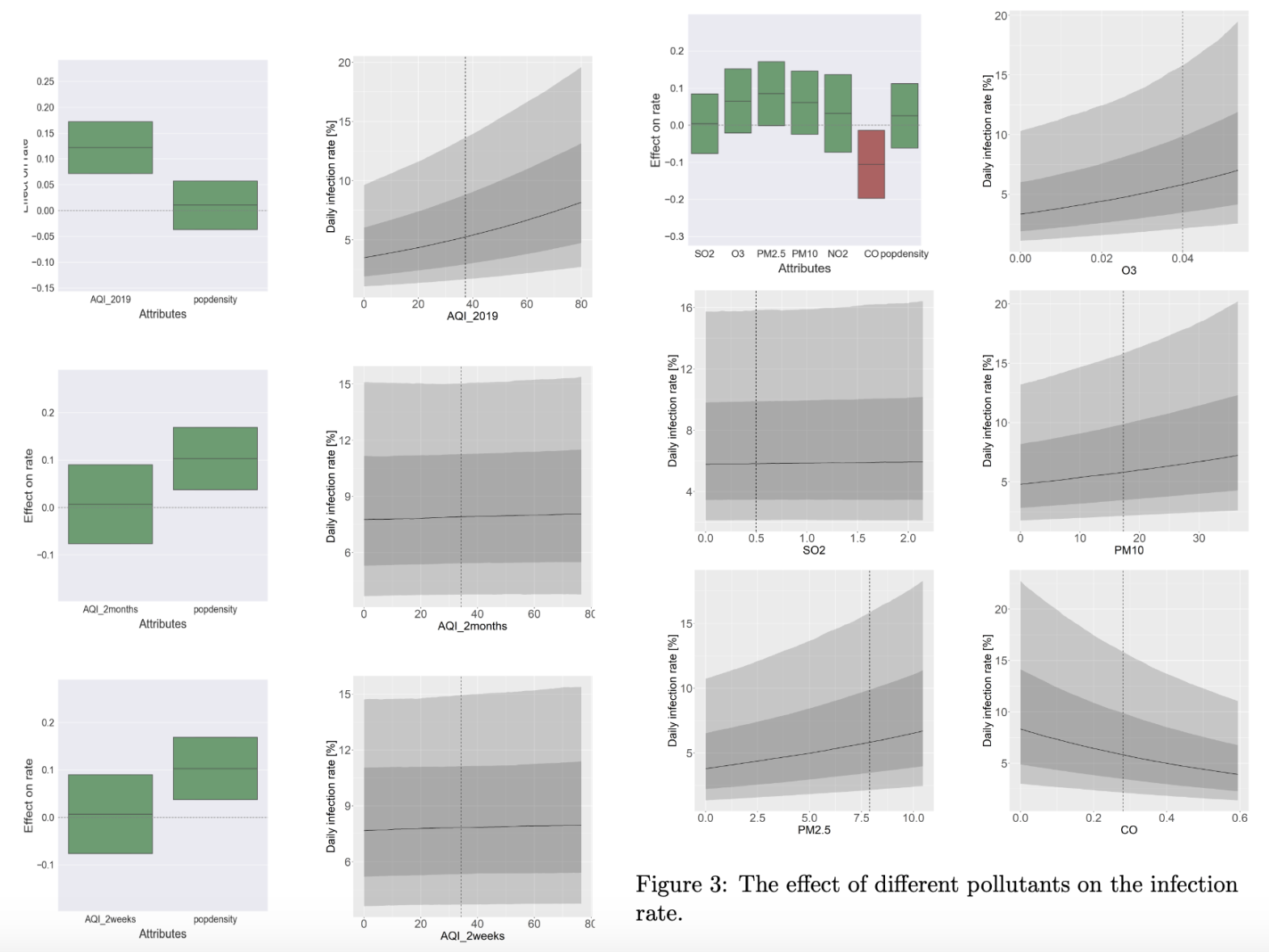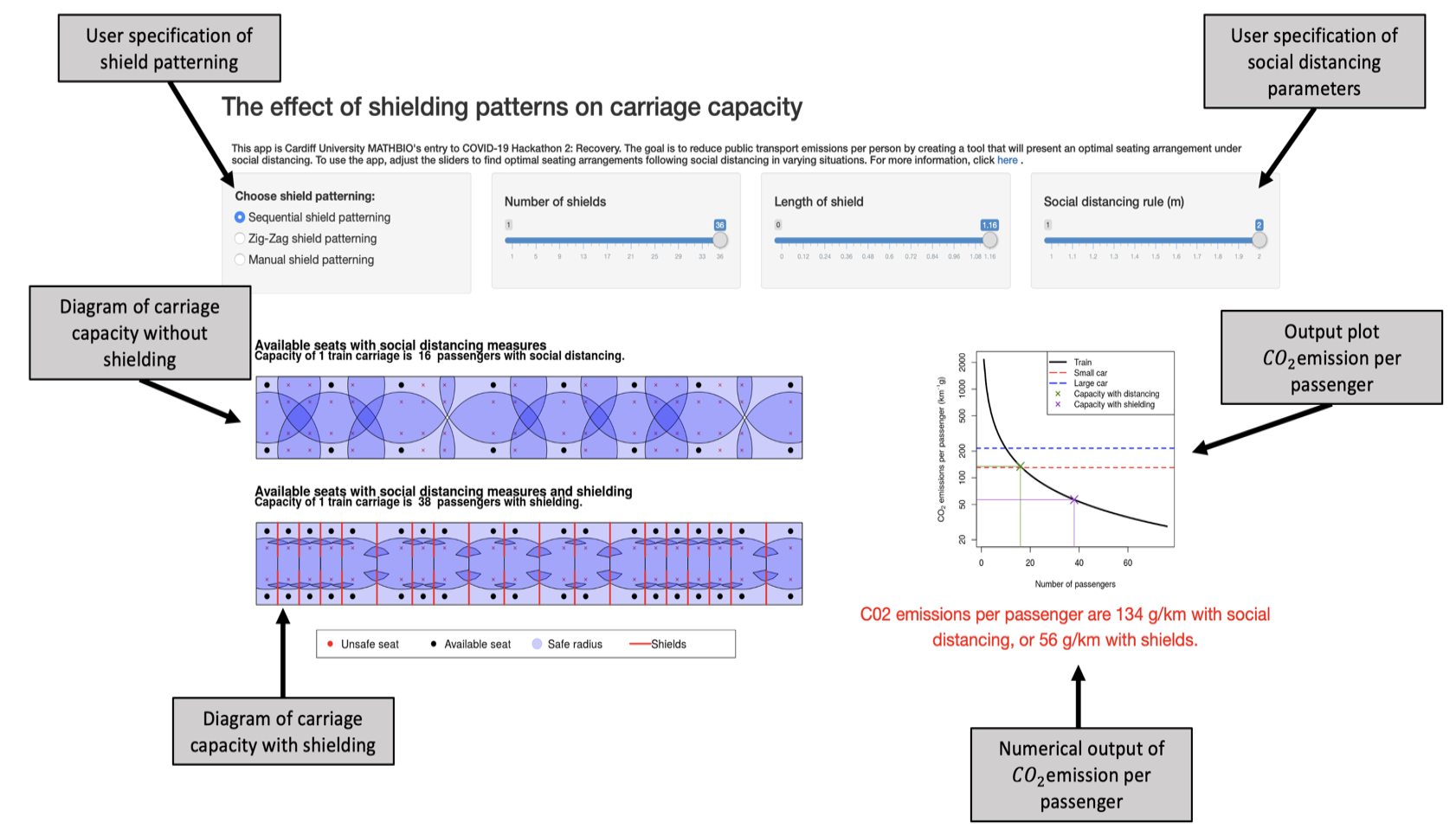NERC COVID-19 Digital Sprint – Hackathon series
13/07/2020

We have now passed halfway through our NERC COVID-19 ‘Digital Sprint’ hackathon activities, and there are some fascinating outputs emerging from this!
Cranfield University’s Ron Corstanje and Stephen Hallett act together as the Natural Environment Research Council (NERC)s ‘Digital Environment Champions’, helping drive forward NERC’s ambitious programme of funded research projects around ‘Constructing a Digital Environment’ – described fully on the programme web portal at https://digitalenvironment.org. The focus of this initiative overall is to develop and apply techniques from data science and computer science to the field of the environmental sciences – developing best practice data-driven approaches to addressing some of the pressing complex environmental issues of today.
Following the COVID-19 pandemic, and seeking to better understand the full environmental consequences of the outbreak, one important part of this programme has been the development of a series of Hackathons. These events, open to all comers, were developed to encourage true multidisciplinary team approaches.
The Digital Sprint commenced with an event that became known as the ‘Ideathon‘, whereby over 80 national and international experts, distinguished scientists and technologists were invited to join an online event hosted by NERC, to explore and tease out the areas where there were particular environmental questions and concerns arising as a consequence of COVID-19, and where data science and informatics inputs could really contribute. This was a most informative and stimulating day, leading to a wide range of themes emerging. It was then a real challenge to home in on a top ranking of these ideas to inform the subsequent hackathons.

The outcome of this exercise allowed us to organise four successive hackathon events. The first event focussed on air quality, and addressed whether there is a correlation between air quality and the incidence and severity of COVID-19 infection, considering what the air quality threshold might be in order to meet to improve individual outcomes. The second event then concerned ‘Recovery‘, focussing on identifying both the positive and negative aspects of the lockdown and recovery measures on meeting Paris and net zero targets, using multivariate signals to highlight these impacts and their inter-relationships to inform decision making. The third event focussed on resilient ecosystems, considering whether/how a healthy natural environment might modulate the spread of COVID-19, and whether changed human behaviours are having an impact on this. A concern was how we might then use this insight to improve health outcomes, and provide evidence-based support for decision-makers and individuals to mitigate their environmental impact and reduce their personal health risk. Finally, the fourth event took a rather different approach of visualising personal risks of COVID-19, seeking to develop solutions able to turn data into actionable information in developing unique and novel ways of communicating risk-based COVID-19 data for environmental solutions. Here, we took the town of Bedford, UK and the surrounding area for the case study.

We have currently completed the first three events, and the final event is currently underway. There have been some truly inspirational and insightful entries to the hackathons, and the winners from each event to date have been given cash awards to mark their success. We have gathered up all the participating entries to date on our CDE programme Github page.
The true impact and legacy of these hackathon events is yet to take shape, but there will be a fantastic set of materials for interested parties to consider and we hope a trigger for some research proposals from the participants seeking to develop their science further.
Categories & Tags:
Leave a comment on this post:
You might also like…
From classroom to cockpit: What’s next after Cranfield
The Air Transport Management MSc isn’t just about learning theory — it’s about preparing for a career in the aviation industry. Adit shares his dream job, insights from classmates, and advice for prospective students. ...
Setting up a shared group folder in a reference manager
Many of our students are now busy working on their group projects. One easy way to share references amongst a group is to set up group folders in a reference manager like Mendeley or Zotero. ...
Company codes – CUSIP, SEDOL, ISIN…. What do they mean and how can you use them in our Library resources?
As you use our many finance resources, you will probably notice unique company identifiers which may be codes or symbols. It is worth spending some time getting to know what these are and which resources ...
Supporting careers in defence through specialist education
As a materials engineer by background, I have always been drawn to fields where technical expertise directly shapes real‑world outcomes. Few sectors exemplify this better than defence. Engineering careers in defence sit at the ...
What being a woman in STEM means to me
STEM is both a way of thinking and a practical toolkit. It sharpens reasoning and equips us to turn ideas into solutions with measurable impact. For me, STEM has never been only about acquiring ...
A woman’s experience in environmental science within defence
When I stepped into the gates of the Defence Academy it was the 30th September 2019. I did not know at the time that this would be the beginning of a long journey as ...






